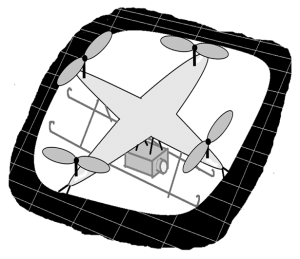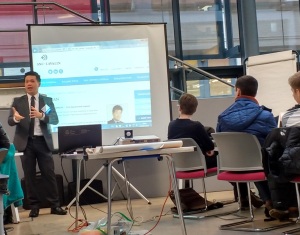By: Andrei-Claudiu Roibu

“I just want them to know
That I gave my all, did my best
Brought someone to happiness
Left this world a little better just because
I was here…”
(Beyoncé – I Was Here, United Nations World Humanitarian Day – click for video)
This is how I would sum up the Global Engineering Challenge organised by the Engineers Without Borders in collaboration with The University of Sheffield. An activity designed to teach young engineering students the values of cross-cutting cultural cleavages, develop solutions for third world problems and so on and so forth. You can read more of this on the University webpage, for I am not going to reproduce what the official text says.
No, if you spend your time in reading this blog, then I will make sure it’s worthwhile and you will be able to understand how this activity works, and why I think that in the end, any student should take part in it.
Before I write anything else, let me just state that I believe that honesty is the highest form of respect you can show a person. Thus, I shall be honest with you and tell you that I never gave a single thought to developing world countries. Although I am come from a poor country, I am proud of it. I also believe that one should solve his own problems, be it a country or person. I became an engineer because I love the technology and lifestyle in western civilization, where I intend to stay and work.
We can get back to talking about the GEC, having cleared that. What is there to talk about? You would ask, considering that one of the reasons EWB runs this project is raising awareness among engineers of the problems in developing countries. Well, this is what I wish to tell you about. I wish to speak about all the other things that GEC teaches you IF you wish to the thought.
The first thing that it teaches you is how to work in a team formed out of people from different backgrounds and engineering fields. When you first hear of it, it sounds easy…let me tell you that it’s not, especially when everyone wants to be “boss” without doing any work. Luckily, I was blessed to work in a good team, where everyone did their job, and as unofficial team leader, I was more than pleased with the results. GEC week teaches you how to make a difference between your personal pride as an engineer and/or person and accept other people’s points of view. It is surprising in an interesting and often nice way to see how different ideas from different fields contribute to a project, and eventually things turn up much better than you would have ever expected.
The second thing that you learn is project management. As engineers, we will find ourselves needing to think about the feasibility of a project, because there are many things that can be theoretically done, but only a few that can actually be done in practice. GEC teaches you how to quantify what can or cannot be done, using specific tools such as SWOT and PESTLE analysis for the entire project, or Stakeholder Analysis in order to understand what are the needs of all the parties (or groups of people) that are involved somehow in that project. Also, as engineers working on a project, we often find ourselves needing to justify to second and third parties our decisions and choices. Decision matrixes are another very useful tool that one can use for this and GEC teaches you how to do. Speaking about justifications, a pivotal component in any project is the budget. Nothing is free in this world, and when designing a system as an engineer, you need to bear in mind that we live in a capitalist society (either if we like it or not) and in order to be successful, you need to achieve more for less, i.e. be efficient.
The third and maybe the most important thing that GEC will teach you, is how to manage your time effectively. The demonstrators have really strict deadlines for both the large, design task, and smaller activities. These time conditions are frankly annoying most of the time, and you’ll end up hating them and even giving up on doing some of the activities because of the hard deadlines. However, if you were in a real-life work environment, not meeting the deadline for even the most trivial of tasks could cost you your job and/or life’s work. It might sound pessimistic, but it is how the world works. In my team, we had a really hard time getting our heads around the time limits in the first two days. However, starting in the second day of the GEC week, we got our heads in the game, and decided on a clear way of handling tasks. Eventually, we ended up finishing our project early, and just sitting around and chatting for most of the final GEC day. I am quite proud of what we did, to be honest. Although we finished early, all our work was done properly and we managed to win “Best Communicated Solution” in our HUB.
I will cut it short here, as I probably bored you to death already. The take-home idea of this blog should be that if you keep an open head in any project in which you take part in, it is almost impossible not to learn at least one useful thing. I learned at least 3 useful skills doing GEC, and that is why I am honestly happy I took part in it.
For us as engineers, learning never stops, and I believe that the difference between a proper engineer and one that is an engineer just because he has a piece a paper saying that he is, that the first one never stops learning, either from nature, the people he works with, the projects he does or even events such as GEC. Vivere!
- I would like to thank my mates and colleagues from GEC, Hub R, Team 5: Dan, Max, Tony, Miguel and Terence – you guys were and are the best!








